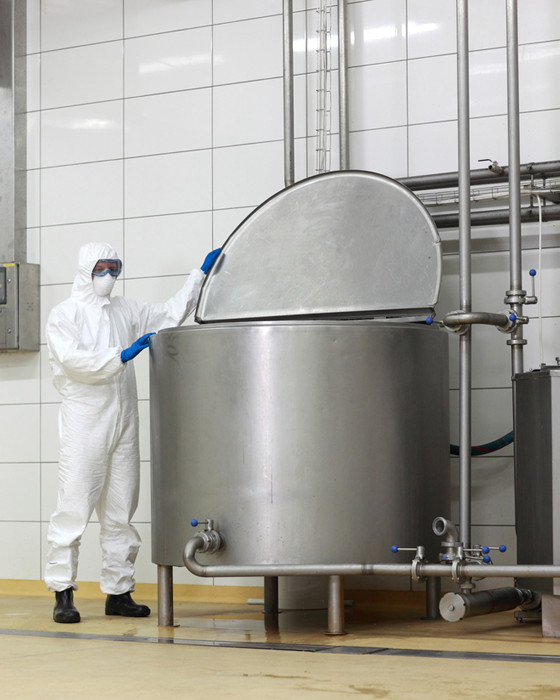Quality
Our company's priority is to always supply high quality products. This would not be possible without the commitment and attention we pay to our production process, from start to finish.
The raw materials, the production cycle and the finished product are all closely monitored, with chemical and bacteriological analyses and all the tests required by law and laid down in the self-monitoring plans based on the HACCP system. The veterinary service is present in the company at all times to ensure additional and constant monitoring. Our machinery is strictly tested and the surfaces swabbed to guarantee the highest quality standards for our customers.
Monitoring
All the operations performed in the company precisely and fully comply with the operating procedures laid down in the self-monitoring plan, for all phases of the production process: monitoring of raw materials; monitoring of processing and cooking times and temperatures; monitoring of vacuum packaging; monitoring of end-of-line packs with a metal detector, to check for the accidental presence of non-conforming parts; monitoring of the cold chain; monitoring of cleaning and sanitisation procedures; monitoring of food handling staff.
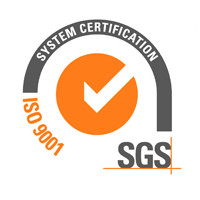
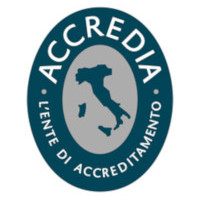
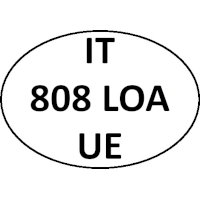
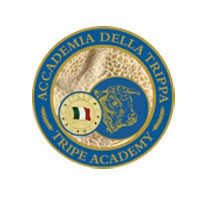
Certifications
Our company has been recognised as compliant with European standards, and has obtained code number IT 808 LOA UE for exporting its products. In line with the most recent European directives, Ferrari Trippa has also obtained certification of its quality management system to ISO 9001:2000, certificate no. IT05/0985. Moreover it has also been certified by ACCREDIA, the Italian National Accreditation Body.
Our products are SGS certified for their compliance with national and international standards, and have the CE conformity label. Taking quality to heart, Ferrari Trippa undertakes to perform specific audits in-house, with all the attention and professionalism required to ensure that our procedures comply with the certification requirements.
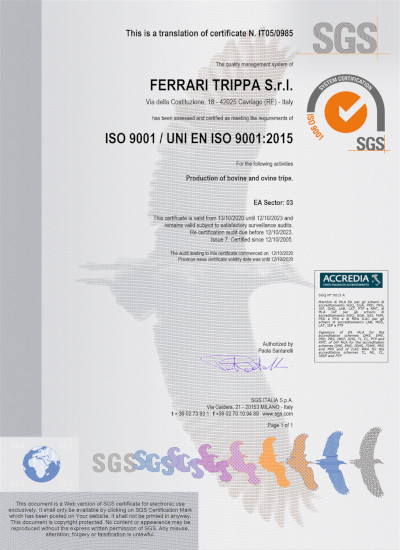
About tripe
Tripe is in fact edible offal from cow stomachs, composed of:
RUMEN
A large sack, representing approximately 80% of the
whole stomach, also known as blanket or flat tripe.
RETICULUM
A small sack linked to the rumen with a spongy
appearance, with small crests shaped like hexagonal "cells", also known as
honeycomb tripe.
OMASUM
The third chamber and the last of the
"pre-stomachs" formed of a sack with lots of flaps, also known as
book tripe.
ABOMASUM
The actual stomach, better known as reed tripe.
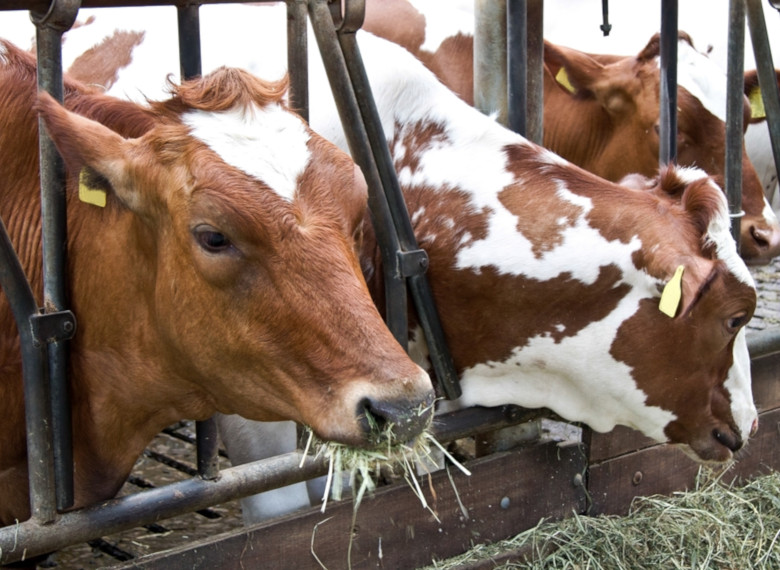
Production
Cleaning and degreasing
In hot water,
in centrifuges that eliminate the inner mucous and outer fat.
Cooking
In tanks of boiling water, to ensure the uniform
cooking of all the products.
Cutting
The tripe is cut into strips, ready to be cooked at
home.
Freezing
Part of the production is frozen in a special tunnel
freezer at a temperature of -40°C, allowing rapid freezing that maintains all the
product characteristics.
Packaging
Our product is vacuum packaged on our modern
packaging line. The vacuum packing guarantees the highest hygiene and health
standards, as well as offering a long shelf life without losing any of the product's
organoleptic characteristics. We supply our customers with products stored in 10/12 kg
or 20/25 kg cartons. The cartons are stacked on film-wrapped pallets with a maximum
weight of 1000 Kg.
Cold chain
The whole production cycle is performed in
temperature-controlled and recorded departments. Prior to shipping, the finished
product is stored at the temperatures laid down in the differentiated standards
according to product type. All the cold cell and department temperatures are
recorded.
Internal logistics and traceability
The whole production
process is controlled by a procedure that provides real time information on the
progress of production and guarantees the identification and traceability of the
product, from when it arrives at the factory as a raw ingredient to when it is
shipped after packaging.
